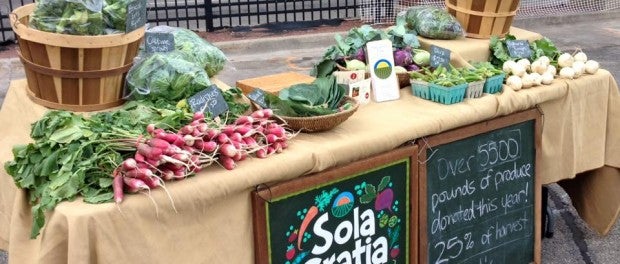Economics of Local Food Webinar

Free WEBINAR: Economics of Local Food: NAFSN Good Food Talk Webinar May 25 at 1:00 pm ET // 10:00am PT
Topic: Economic Impacts of Local Food Systems: Measuring Outcomes (Economics of Local Food)
Date: Thursday, May 25, 2017
Time: 1:00 pm Eastern Time (10:00 am Pacific Time)
Economics of Local Food Webinar Panelists
- Rich Pirog — Director, Center for Regional Food Systems, Michigan State University
- Dawn Thilmany — Professor, Agricultural & Resource Economics, Regional Economic Development Institute, Colorado State University
- Ariel Kagan — Senior Program Associate, Sustainability Collaborative, Food Institute, George Washington University
- Kathleen Liang –– Director, Center for Environmental Farming Systems, North Carolina State University
- Becca Jablonski — Assistant Professor and Extension Economist in Food Systems at Colorado State University
Economics of Local Food Webinar Moderator:
- Jeffrey K. O’Hara — Agricultural Marketing Specialist, Local Food Research & Development, USDA, Agricultural Marketing Service
Register Here for the Economics of Local Food Webinar:
Economics of Local Food Abstract
In recent years, a considerable effort has been made at improving data collection for local food systems, engaging and developing resources for practitioners to evaluate local food system activity, and to standardize the metrics used in reporting the impacts of local food grant and loan programs. The presenters will provide an overview of some of these initiatives. The objective of the webinar is to engage local food funders, researchers, and practitioner in a conversation about the effectiveness of these initiatives; if and how they have impacted local food system activity; whether there are merits to formation of a “community of practice” that would educate, share, review, and critique local food system studies and data collection processes; and if so, to discuss how such a community of practice could be structured. A number of questions have arisen:
- How effective are communities, local food practitioners, and researchers at evaluating local food system activity? What are the strengths and weaknesses?
- Has the capacity to evaluate local food market activity improved in the previous five years?
- How strong and mutually reinforcing are the partnerships between community practitioners, researchers, and food system funders (like government agencies) at collectively and satisfactorily evaluating local food projects?
- Are there opportunities to advance such a community of practice? How would it look? What are effective strategies for doing so?
Additional Information
This webinar will bring some high level insights from the Local Foods Impact Conference April 3-4, 2017. The U.S. Department of Agriculture’s Agricultural Marketing Service (AMS), in partnership with George Washington University, hosted this conference that was designed to explore how to best measure the impacts of local food investments, improve coordination across USDA agencies, and evaluate the extent to which disparate local food investments are complementary and reinforcing. Over 300 people attended with and another 500 tuning in via livestream for the plenary sessions. FYI, here are videos of the mainstage presentations, photos and slide presentations.
As background, the discussion for this webinar grew from a 2013 meeting to address the state of economic analysis of local and regional food systems convened by Michigan State University’s Center for Regional Food Systems and the Union of Concerned Scientists’ Food & Environment Program (https://foodsystems.msu.edu/resources/econ-analysis-webinar). Subsequently, in 2014, the USDA AMS convened a team of regional economists and food system specialists to develop a best practice Toolkit for evaluating the economic impacts of local food system activities. This NAFSN Webinar will provide an update on the thinking since that conference and the experience with the Local Food Systems Toolkit.






 Your Privacy Choices
Your Privacy Choices
Leave a comment